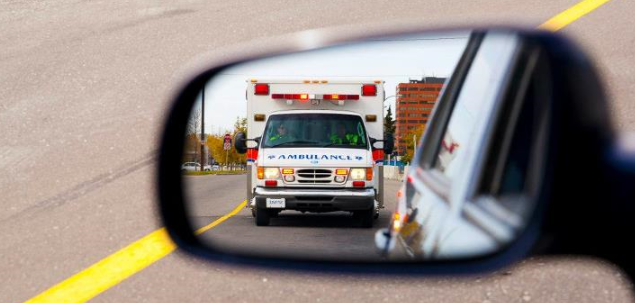Failure to yield to an emergency vehicle in North Carolina – In North Carolina, not all traffic violations are created equal. In fact, not all traffic violations are categorized only as traffic violations – some of them can also be considered crimes. Most people’s first instinct when they get a traffic citation is to just pay the fine. That is bad enough when someone simply has a speeding ticket (which can cause them license points and an increase in their insurance rates), but when you pay some traffic violations, you are in fact admitting to a crime. Because the majority of people do not understand this, it is not uncommon for us to encounter individuals with criminal records that have no idea that they have a criminal record.
One such traffic violation that falls into this category is failure to yield to an emergency vehicle. In this blog, we will discuss failure to yield to an emergency vehicle, the consequences of this conviction, and what you should do if you are cited with it. Like all of our blogs, this blog is intended for general informational purposes only, and is not intended as a substitute for the advice and counsel of a traffic attorney.
What is failure to yield?
This particular citation occurs when a driver fails to move over or stop when an emergency vehicle is approaching. This is covered under North Carolina general statute 20-157. Under this statute: upon the approach of any law enforcement vehicle with adequate warning, a driver “shall immediately drive to the same position as near as possible and parallel to the right-hand edge or curb, clear of any intersection of streets or highways and shall stop and remain in such position unless otherwise directed by a law enforcement officer, or until that vehicle has passed”.
What this basically means that everyone should get out of the way, preferably by moving over to the right and staying there until the vehicle has passed.
Emergency vehicles under this statute include but are not limited to:
- Law enforcement vehicles
- Fire trucks
- Ambulances
- Rescue squad vehicles
- Public service vehicles
Consequences of failure to yield to an emergency vehicle
This violation is usually punished as a Class 2 misdemeanor and follows the North Carolina misdemeanor sentencing guidelines. Additionally, this leads to license points, insurance points and can possibly cause the suspension of your driver’s license under certain circumstances.
What should I do if I was cited for failure to yield to an emergency vehicle?
Like most citations, you should contact a traffic attorney immediately. Traffic tickets are treated like crimes in that you are presumed innocent until you are proven guilty or you make an admission of guilt. In the case of a traffic ticket, simply paying the ticket is an admission of guilt, so you should think hard and talk to someone before you do that.
If you are in need of a traffic attorney, contact us. Gilles Law handles traffic matters in Charlotte, North Carolina and the surrounding counties in North Carolina.

